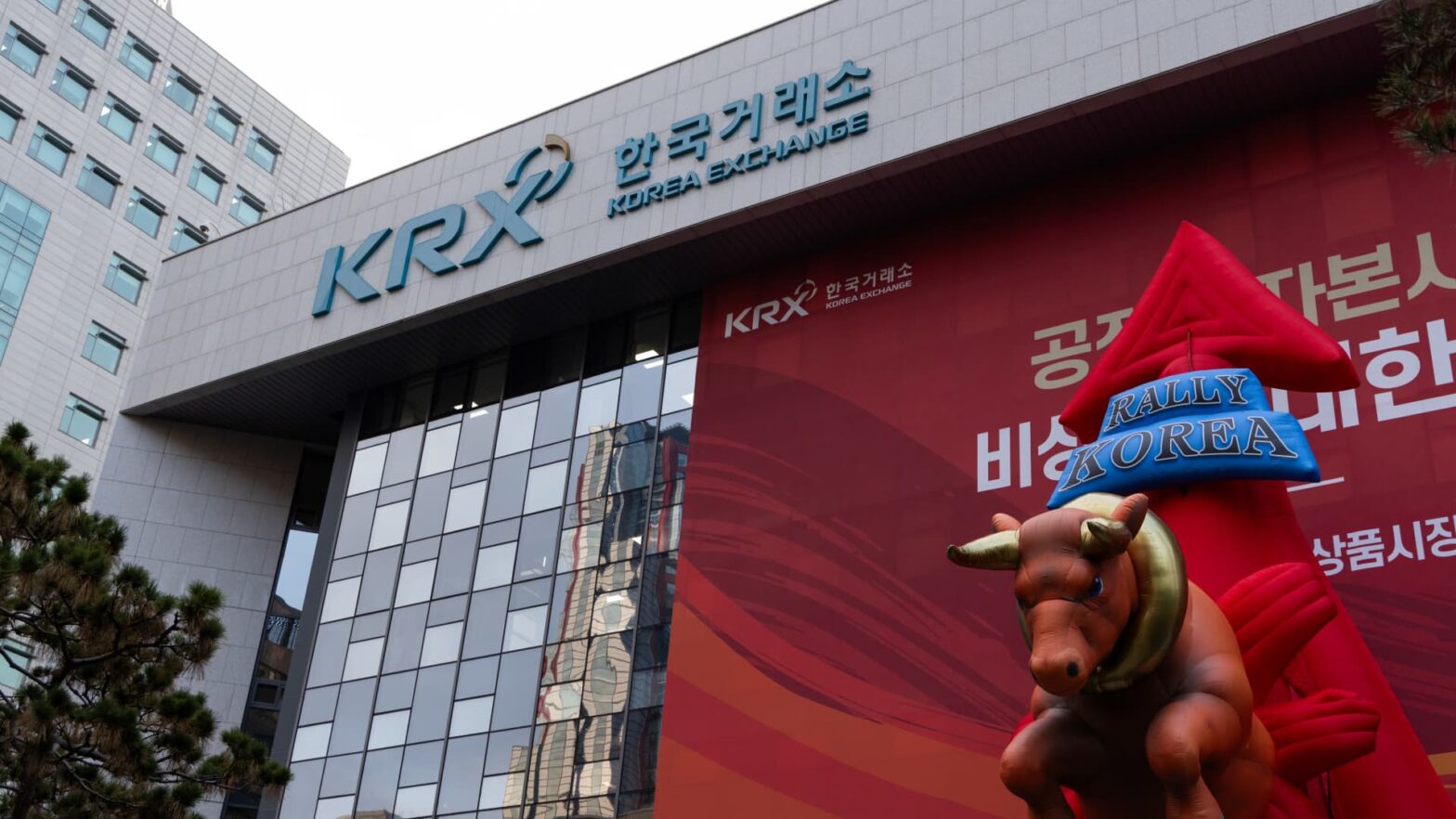An inflatable bull during a ceremony marking the first day of trading of the year at the Korea Exchange (KRX) headquarters in Seoul, South Korea, Tuesday, Jan. 2, 2024. SeongJoon Cho/Bloomberg via Getty Images
Bloomberg | Bloomberg | Getty Images
South Korea’s Japan-style measures for improving corporate governance may not be enough to boost its undervalued stock markets and tackle the so-called “Korea discount.”
The country’s Financial Services Commission on Monday revealed its “Corporate Value-up Program,” aimed at supporting shareholder returns through incentives including tax benefits.
Asia’s fourth-largest economy is striving to boost stock market valuations that are considered much lower compared to peers, with analysts referring to the phenomenon as the “Korea discount.”
The FSC program is similar to that of Japan’s, whose corporate governance push to boost shareholder returns as well as robust earnings have driven Tokyo markets to record highs after 34 years.
South Korea’s steps, while similar to those taken by Japan, may not prove to be as successful.
The ‘chaebol’ problem
South Korean markets are made up of corporations called “chaebols,” which are large family-owned global conglomerates, typically controlled by the founder’s family. Notable chaebols include Samsung Electronics, LG, SK and Hyundai.
The chaebols are also part of the reason behind the Korea discount as under these majority family-owned structures, minority stakeholders have little influence on strategic decisions.

“Key issue is that ‘Korea discount’ exists because controlling shareholders take disproportional benefits,” said James Lim, senior research analyst at Dalton Investments, while noting that Korea has more companies with strong controlling shareholders versus Japan. “That’s where the challenge lies.”
Resistance from controlling shareholders makes changes difficult and slow, but if authorities take measures that would align with the interests of both the controlling as well as minority shareholders they could be implemented faster.
FSC has asked listed companies on the Korean Stock Exchange to “voluntarily set up and disclose valuation enhancement plans,” as part of its efforts to introduce more transparency and boost market returns.
The FSC will frame detailed guidelines and set up a dedicated web portal in June so companies can disclose their plans in the second half of 2024.
Jonathan Pines, lead portfolio manager of Asia ex-Japan at Federated Hermes said there are far more family-controlled companies in South Korea that are now deriving “substantial financial benefit from the regulatory status quo.”
“The behavior that leads to South Korea’s low stock prices is motivated, and therefore seeking to coax South Korean controlling families into ‘being nice’ to minority stockholders is unlikely to be successful,” Pines said.
More steps needed
South Korean authorities have sought to ease registration requirements for foreign investors, curb short selling, extend trading hours and revise dividend record dates, among other actions, aimed at improving market valuations.
But experts say FSC needs to make more concerted efforts for a significant boost to the markets.
“While the [latest] initiatives show Korea taking a step in the right direction, bigger steps need to be taken to address corporate practices that favor controlling stakeholders – usually the founding families – over smaller shareholders,” Daniel Tan, Singapore-based portfolio manager, Grasshopper Asset Management told CNBC.

Tan said the recent measures such as to push listed companies to set up and disclose valuation boosting plans still largely rely on voluntary efforts, rather than being imposed as mandatory changes.
Experts argue that targeted and strong reforms need to be in place for South Korea markets to come even close to the rally in Japanese markets.
Korean authorities should implement laws that require company directors to be responsible for enhancing shareholder returns rather than them being just “loyal” to the company, Federated Hermes’ Pines said.
South Korean companies should propose plans to raise stock prices to at least their book value, he added.
A price-to-book ratio measures whether a company’s shares are undervalued, with a number below 1 indicating the stock’s price may be below fair value.
For instance, the price-to-book of value of Samsung Electronics stands at 1.40, while that of Taiwan-listed Taiwan Semiconductor Manufacturing Company is 5.23 and that of U.S.-listed Apple Inc was 37.80.
— CNBC’s Lim Hui Jie and Clement Tan contributed to this story.















